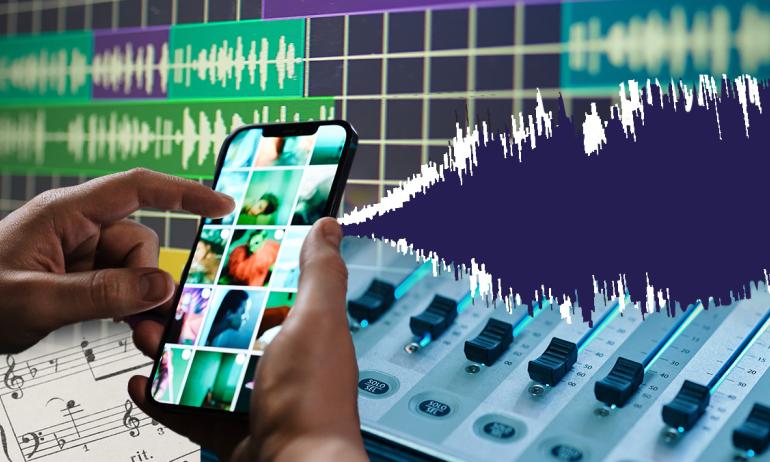Tax Tips for Musicians
Good tax counsel says, "to avoid is legal, to evade is illegal." Understanding tax law can save you money and spare you other problems.
Shortly after I joined the Berklee faculty, a fellow faculty member came to me for some income tax advice. He suspected that he was paying too much in taxes. I asked him to allow me to study his last three tax returns, and I would determine if he had been overpaying. After a review of his returns and a follow-up interview, I confirmed that he had, in fact, paid too much. I prepared amended returns, and he received federal and state refunds for each of the three preceding years, totaling just under $89,000 (including interest).
While most musicians may not find that they have overpaid to this extent, many may be unaware of legitimate deductions that can help to reduce their taxable income. As well, the flip side of that situation (claiming nonallowable deductions) can result in an unpleasant encounter with the IRS and fines. A music and entertainment industry tax preparer is best suited to make sure that a professional musician pays what is owed, no more, no less.
The issue of taxation is addressed by the 16th amendment to the U.S. Constitution, so it is the law of the land. In reality, taxing authorities are also law enforcement agencies. They interpret and administer the tax laws at the federal, state, and local levels. Be advised that all taxing authorities exchange information about taxpayers. When someone runs into trouble with one agency, he or she can be certain that another tax agency is awaiting their turn to visit the same area of confusion.
My Berklee colleague's problem was simply improper return preparation. His tax preparer wasn't familiar with the specific and unique aspects of a musician's income and expenses. For example, knowing that royalties are not subject to the self-employment tax and should be reported as regular income could save you money.
The quality of my friend's tax records saved the day for him. Record keeping is required under the law. Good records document both income and expenses and are a matter all music business professionals--rookies and industry icons alike--must attend to. Excellent records will make your tax preparer's job easy.
Business and personal records should be retained for a period of seven years because the tax look-back period is six years. Generally, there is a window of three years to file an amended tax return if necessary. It is important to note that taxing authorities can obtain information about you from many other sources if necessary during a review of your case. The major sources of information that they can tap into include performing rights organizations (ASCAP, BMI, SESAC), unions, and banks.
We have all heard about the tax problems that high-profile artists have experienced. Each and every one of those cases could have been avoided if the people involved had a better understanding of what the law requires of them. Free information for federal, state, and local income taxes is readily available today over the phone, by mail, by fax, and over the Internet. Most taxing authorities have their own web sites. One of the most informative sites, <www.1040.com> has links to the IRS and tax authorities in all 50 states. (See accompanying sidebar)
Although taxpayers in the music business are more likely to be audited, learning the rules and sticking to them will significantly reduce your chances of running into a tax-related problem.
Martin Dennehy has been a professional musician for 30 years and is author of the book The Income Tax Guide for Musicians and Other Professionals in the Music Business. He is a public accountant and tax specialist and can be contacted at <mjdennehy@juno.com>.
Tax Help Resources
www.1040.com offers general information, options for downloading federal and state tax forms, and links to other tax and finance related sites.
(800) 829-1040 - IRS hotline for tax questions, your tax history information, and requests for hard copies of federal tax forms.
Allowable Deductions Checklist
| Vehicle mileage allowance of $.32 per mile (To take this deduction an accurate log of business mileage must be kept.) | |
| Parking, transportation, and food expenses for professional travel | |
| Rehearsal space rental fees | |
| Telephone expenses (The taxpayer must have at least two lines to qualify for this deduction. Cellular service is considered a second "line.") | |
| Stage clothing and dry cleaning expenses (only outfits appropriate for stage wear exclusively may be deducted) | |
| Full or partial cost of purchasing a computer | |
| Software for contract writing, music editing, notation, and sequencing | |
| Costs associated with conducting business via the Internet (includes ISP costs, web site development, and hosting charges) | |
| Promotion costs: photos, mailings, cost of throwing a CD release party | |
| Instrument and/or voice lessons (individual circumstances dictate whether this is an allowable expense) | |
| Cost of rented or leased equipment | |
| New musical equipment purchases | |
| Equipment repair or maintenance costs | |
| Cost of vaccinations for foreign touring | |
| Cost of applicable insurance (equipment, liability, worker's compensation, health and dental insurance) | |
| Portion of home mortgage deduction (if office space or rehearsal space is maintained there) | |
| Cost of tax return preparation |



